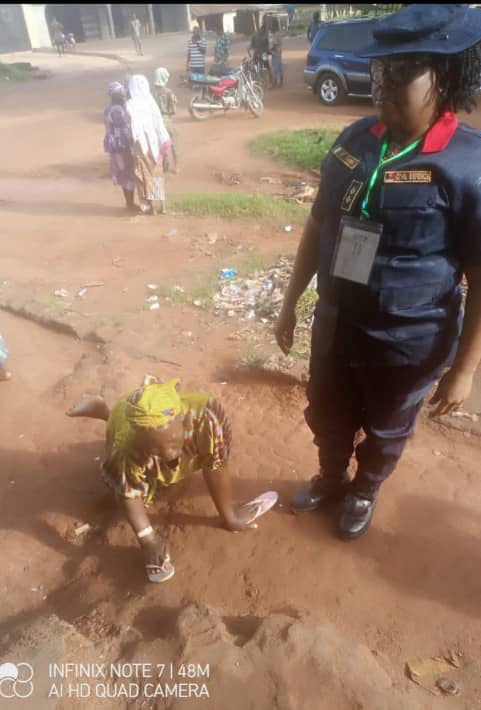*We’re disappointed with inadequate assistive election materials -Wi-App laments
*Says election recorded low PWD, high rate of women turnout
By Olasunkanmi Akoni
The recently concluded Governorship and State House of Assembly elections in Nigeria, has produced several stories.
As much as the media, local and foreign observers among other interested personalities still have stories to tell, the lame, blind and deaf were also there to witness what happened. And, it is only fair that all, present their stories according to what they witnessed.
For a Civic organization catering for the interest of people with disabilities, We Included Application (Wi-App), the election produced more disappointment for its members.
Wi-App regretted the inadequate provision of assistive materials at polling Units enable People with Disabilities PWDs, vote easily.
In a post election situation report signed by the Convener, Obasanjo Fajemirokun, Wi-App deployed 45 Election Eyewitnesses in 11 states for the Governorship election in 28 states across the nation.
According to Fajemirokun, “45 WI-APP Election Eye-witnesses (E2) were on ground in 11 states on March 18th 2023, to contribute to this process by observing voting activities in 45 polling units.”
“However, during the Governorship and House of Assembly elections on March 18th, 62% of sampled polling units had no assistive devices for People With Disabilities (PWDs), instead a paltry one or two assistive devices were deployed in 38% of sampled polling units in11 states”. WI-APP, which is aimed at increasing the inclusion of women, young people, and persons with disabilities (PWDs) in Nigeria’s electoral process, observed low participation of PWDs and high participation of women.
“From our collected data on women and PWDs, we observed 3% participation from PWDs and 97% participation of women in our sampled polling units in 11 states.”
“ PWDs participation in sampled polling units shows 16% participation in Lagos, 7% in Cross River, 1% in Enugu, 32% in Kano, 4% in Nassarawa, 7% in Niger, 13% in Ogun, 16% in Oyo, 1% in Kwara, no participation of PWDs in Ekiti and Ondo States.”
On Women participation by states, the Wi-App eye-witnesses observed in sampled polling unit that 32.2% participation in Lagos, 3.8% in Cross River, 0.4% in Ekiti, 2.1% in Enugu, 12.8% in Kano, 4.5% in Kwara, 3.4% in Nassarawa, 4.1% in Niger, 18% in Ogun, 15.5% in Oyo and 3.2% in Ondo States.
Fajemirokun acknowledged that election officials arrived at the polling units on time but a lot of PWDs could not properly vote because of low assistive tools.
He said, “In the polling units observed, there was early arrival of INEC officials at polling units. Our findings reveals that over 52% of INEC ad-hoc staff started accreditation of voters at the polling unit between 8:00 am and 8:30 am, 27% started between 8:31 am to 9:00 am, 11% between 9:00 am to 9:30 am, 5% between 9:31 am to 10:00 am while 5% started accreditation from 10:00 am,” he said.\
“This new development showed that the electoral body learned lessons from the last presidential elections and improved the early arrival of staff to commence accreditation,” he added.
In addition, Wi-App observed several incidents, including electoral process disruption by thugs in Darmanawa, Tarauni Local Government in Kano State; an attack on a journalist at polling unit 061, Chiroma ward, Lafia Local Government Area in Nassarawa State; and a child voter being accredited at Irete polling unit 010, ward 049 of Odogbolu Local government, Ogun State. Thugs also disrupted the voting process in Lagos and Ogun states. A female vote buyer was also caught secretly buying votes at polling unit 10, ward 049, Gwale Local government in Kano State and was subsequently arrested by security agents.
The Organisation however urged INEC to investigate reasons for the inadequate deployment of assistive tools to polling units with registered persons with disabilities, which can disenfranchise them. Also, “INEC should work more closely with EFCC and ICPC to be deployed to most polling units across Nigeria to curb vote buying.”


